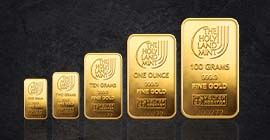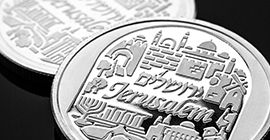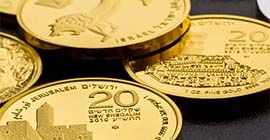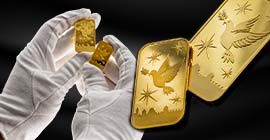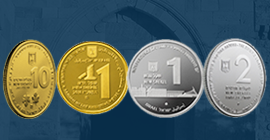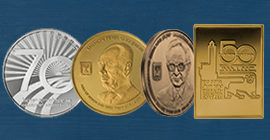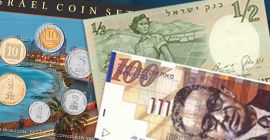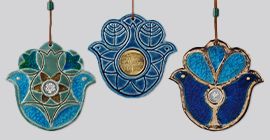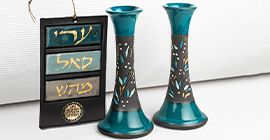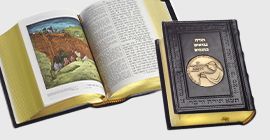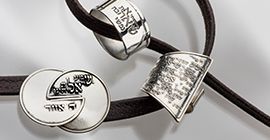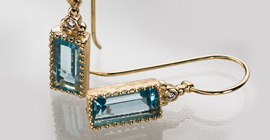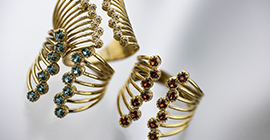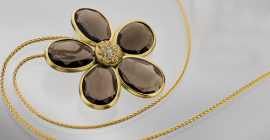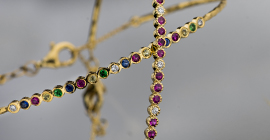Redemption of the First-Born Son
State Medal, 5742-1982
The medal was issued principally to make it possible to redeem the first born son from his sacred obligations, with five silver shekels. The redemption act is also a reminder of the fact that the first born escaped the fate of the Egyptian first born. The first born were intended to minister as priests to the people. However, since the Levites and the priests, descendents of Aaron, were found to be more suitable for sacred service, God commanded us to redeem our first-born sons by purchasing their exemption from this high office. In the response volume "Yechaveh De'ah", Halacha corner, fourth section, by Chief Rabbi Obadyah Joseph, it is stated, "30 draham of pure silver, or its equivalent in value, would be sufficient for the act of redemption. However, according to the custom established in Jerusalem for many past generations, we must give 31 draham pure silver, or its equivalent, which amounts to one hundred grams of pure silver". The weight of a draham is 3.2 gram. Therefore, it follows that as five Pidyon Haben medals contain 102.85 grams of pure silver (each medal weighs 20.57 grams pure silver) the total exceeds somewhat the weight of the sacred shekels mentioned in the Torah.
Obverse: The chalice that served the Temple and five pomegranates, symbols of the "Five Shekels of the Sacred Kind." These symbols were found on the ancient Jewish shekels. Around: a crown based upon the seven varieties (for which the Land of Israel was praised).
Reverse: The Hebrew verse: "And their redemption when a month old shall you redeem - shall be by your valuation, five silver shekels, the sacred shekels" - Numbers 18:16. The inscription "Pidyon Haben Medal" in English.
Edge: The State emblem and the words: "State of Israel" in Hebrew and English. In Hebrew, "Silver 935" and "Silver" in English.
Serialization: The medals are numbered.
Designer: Yitzhak Pugacz.
Engraving: Tidhar Dagan.
Mint: The Israel Government Mint, Jerusalem.

